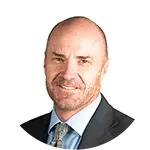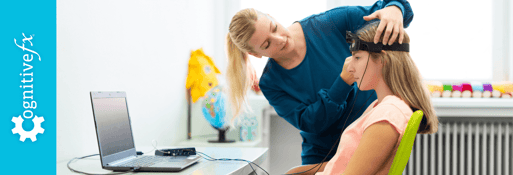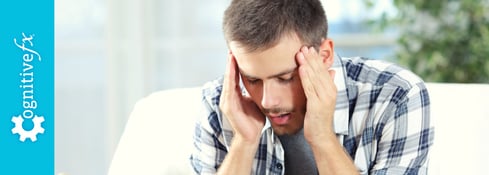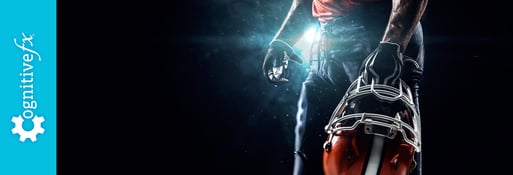If you notice symptoms after a concussion, it’s best not to wait to seek treatment. If you’re the type to “wait it out” and see if things get better, then we recommend waiting no longer than three months. After that, it is very unlikely your symptoms will improve, so it makes sense to pursue active rehabilitation of concussion and post-concussion syndrome (especially if those symptoms interfere with your everyday life).
As it turns out, there are a lot of therapies you can use during rehab; we detail seven here, and many overlap in practice. Which kind of therapies you need depends entirely on the symptoms you have. A good concussion clinic or doctor will use a combination and intensity of therapy designed to help you recover rather than just teach you how to manage concussion symptoms.
We routinely get questions from patients about what kinds of therapy will help them recover from their mTBI (mild traumatic brain injury). To answer those questions, we’ve written a short guide to seven types of therapy (follow the hyperlinks to skip ahead to a certain section):
If you’re experiencing symptoms that won’t resolve after a mild traumatic brain injury, you’re not alone. And you’re not crazy. 90% of our patients show symptom improvement after just one week of treatment at our center specializing in post-concussion therapy. To see if you are eligible for treatment, sign up for a consultation.
Concussion Physical Therapy
Physical therapy is usually not a stand-alone therapy in concussion rehabilitation. It’s often used in combination with other therapies targeting specific symptoms.
In general practice and sports medicine, physical therapy involves a set of exercises designed to rehabilitate a muscle or a part of your body. The goal is to return to normal, healthy functioning in that part. While physical therapy is sometimes used in this way to help with things like dizziness, balancing, and nausea, it has to be used in combination with other therapies to have the right effect on a head injury.
At Cognitive FX, we weave in physical therapy exercises with therapies like occupational therapy. Athletic trainers work with patients before targeted therapy to get patients’ heart rate up and elicit something called the post-exercise cognitive boost (PECB).
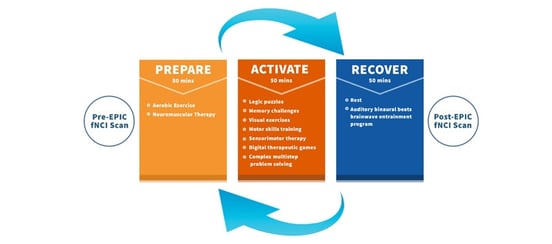
Every day at our clinic begins with aerobic exercise because it jumpstarts your body and your brain. Vigorous physical activity ensures there is plenty of oxygen available for your brain to use in subsequent tasks. For example, you’ll often see our patients on stationary bikes doing interval training to prepare for the next therapy session.
In addition, trainers will work with patients on strengthening, balance, and movement exercises to help their whole body move better. It doesn’t matter if you have a sport-related concussion, a concussion from a motor vehicle accident, or a different mTBI: Physical exercise can help everyone. Of course, activity level will vary depending on your tolerance for exercise going into treatment.
Concussion Vestibular Therapy
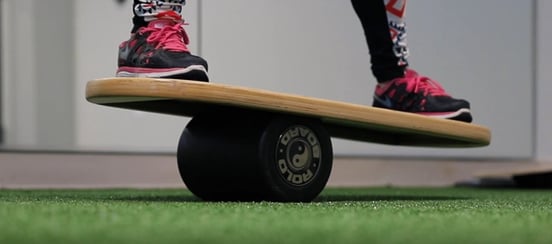
A vestibular therapist is trained to help patients with balance problems and dizziness. Many of our patients experience changes involved with vision, the inner ear (which has small crystals that help your head orient itself in space), and the region of the brain that governs balance. While some concussion patients have dislodged some of their inner ear crystals, it’s most common for the brain to be the source of their balance woes. If a concussion has impacted your vision, that would contribute to difficulty balancing or dizziness spells as well.
To help the brain rewire itself, we have athletic trainers and neuromuscular therapists to work on vestibular rehabilitation. If needed, they will also provide therapies like the Epley Maneuver to reset inner ear crystals.
Concussion Speech Therapy
Some concussion programs have speech therapists on staff, although what they practice will rarely look and sound like traditional speech therapy health care.
At Cognitive FX, our speech therapists focus heavily on cognitive therapy. They target things like cognition (i.e., thinking and reasoning), memory, attention, and executive functioning. If you’ve had symptoms like difficulty concentrating, difficulty making decisions, short-term memory troubles, etc., then this and occupational therapy (discussed below) will address those symptoms.
For example, you might sort cards into piles based on multiple criteria, solve logic puzzles, or recall a fruit for every letter of the alphabet. Usually, this happens after a physical therapy session so the brain is primed for learning and rewiring.
Concussion Occupational Therapy
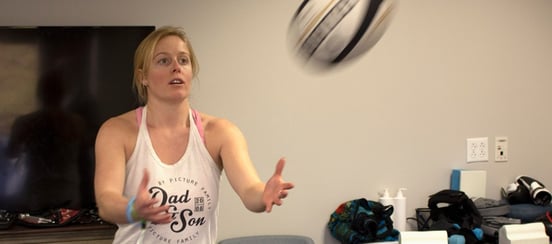
In many cases, occupational therapists help you to adjust and adapt to your new limitations, helping you live the best life you can within the confines of your injury. And with permanent injuries, this service is invaluable.
But persistent symptoms from a concussion do not have to be permanent. The best occupational therapists will design their rehabilitation programs to lessen symptom severity, not just help you learn to live with them.
The occupational therapists at Cognitive FX aren’t trying to help you compensate for your injury; they’re trying to help you recover from it. To that end, they walk patients through many multisensory exercises designed to engage multiple regions of your brain at once. This active rehabilitation can even carry over to your life at home when you’re done with treatment, since our therapists also teach you how to continue certain exercises on your own as needed.
Occupational therapy is where you’ll see the greatest blend of concussion therapy exercises. Our therapists often employ a combination of physical and cognitive exercises to target specific regions of your brain for concussion recovery.
Our patients show an average symptom improvement of 60% after just one week of treatment at our center specializing in post-concussion therapy. To see if you are eligible for treatment, sign up for a consultation.
Concussion Vision Therapy
The kind of vision therapy you might get from a standard optometrist and the kind you’ll get from a concussion care specialist are vastly different.
If you’re having vision problems that stem from a concussion, typical eye doctors will not be able to help you. Why? Because they are trained to treat your eyes, and if the problem stems from a concussion, your eyes are not the problem. Rather, it’s the connection between the brain and the eyes that is likely causing the issue.
Most optometrists will evaluate your vision and not see much of a change by their measures. If they do see a problem, a common correction is with prism glasses (which can help some people to a certain degree). However, a vision specialist focusing on active vision therapy will be able to detect many problems with the eyes and the connection to the brain that a standard optometrist can easily miss.
Vision therapists are a lot like physical therapists in that they will take you through a set of exercises designed to help your vision (and the region of your brain responsible for it) recover lost functionality. Tools like a DynaVision board or a Brock String can all contribute to your diagnosis and recovery under the guidance of a skilled vision therapist.
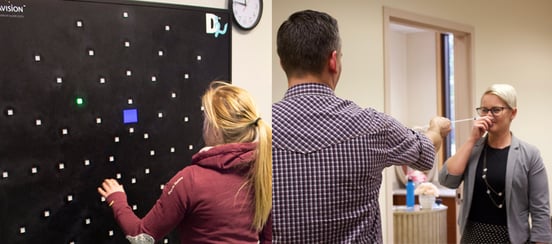
While we do not have an in-house vision therapist at Cognitive FX, we are able to offer many vision therapy techniques. In the most complex cases, we work closely with a local vision therapist to ensure every patient’s needs are met.
Concussion Music Therapy
Music therapy is a helpful, research-backed addition to any therapy regimen. Exactly how it’s used in conjunction with other therapies can vary greatly from clinic to clinic.
At Cognitive FX, we don’t use music therapy per se. But we do use headphones and sounds to calm your autonomic nervous system during treatment. Here’s how:
During therapy, we cycle physical exercise, cognitive activity, and rest. During the rest phase, we will often have patients listen to Brainwave, which has a series of binaural beats to encourage a restful brain state. This opportunity to relax and rest improves brain function for subsequent treatments.
This recovery time is key for more frequent, effective therapy throughout the day.
Concussion Massage Therapy
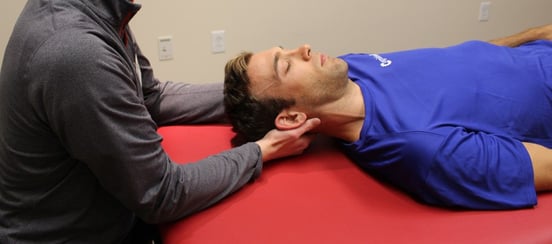
Can massage therapy help you recover from a concussion? Yes — in a sense. Taken by itself, massage therapy couldn’t improve concussion symptoms permanently. But it can help you relax and relieve tension and neck pain from injury, making it easier to continue with targeted concussion therapies.
At Cognitive FX, most of our neuromuscular therapists are also massage therapists. During the “rest” phase of treatment, they may use massage therapy to help you recover and prepare for your next series of physical and cognitive exercises.
Things to Remember
The therapy you receive as part of your concussion management and treatment plan can vary dramatically based on where you go, what kind of therapy is provided, and how that therapy is provided. As a general rule of thumb, targeted therapies should be delivered at least several times per week. Otherwise, your brain won’t be taxed enough to make a change and start recovering.
In addition, there is a big difference between therapy designed to help manage your symptoms and therapy designed to improve your symptoms. The best treatment centers, doctors, and therapists will work with you to address the cause of your symptoms rather than focus on helping you live with them.
While no one can guarantee you a symptom-free life after treatment, it is possible to recover from post-concussion syndrome. 90% of our patients show symptom improvement after just one week of treatment at our center specializing in post-concussion therapy.
To see if you are eligible for treatment, sign up for a consultation.
